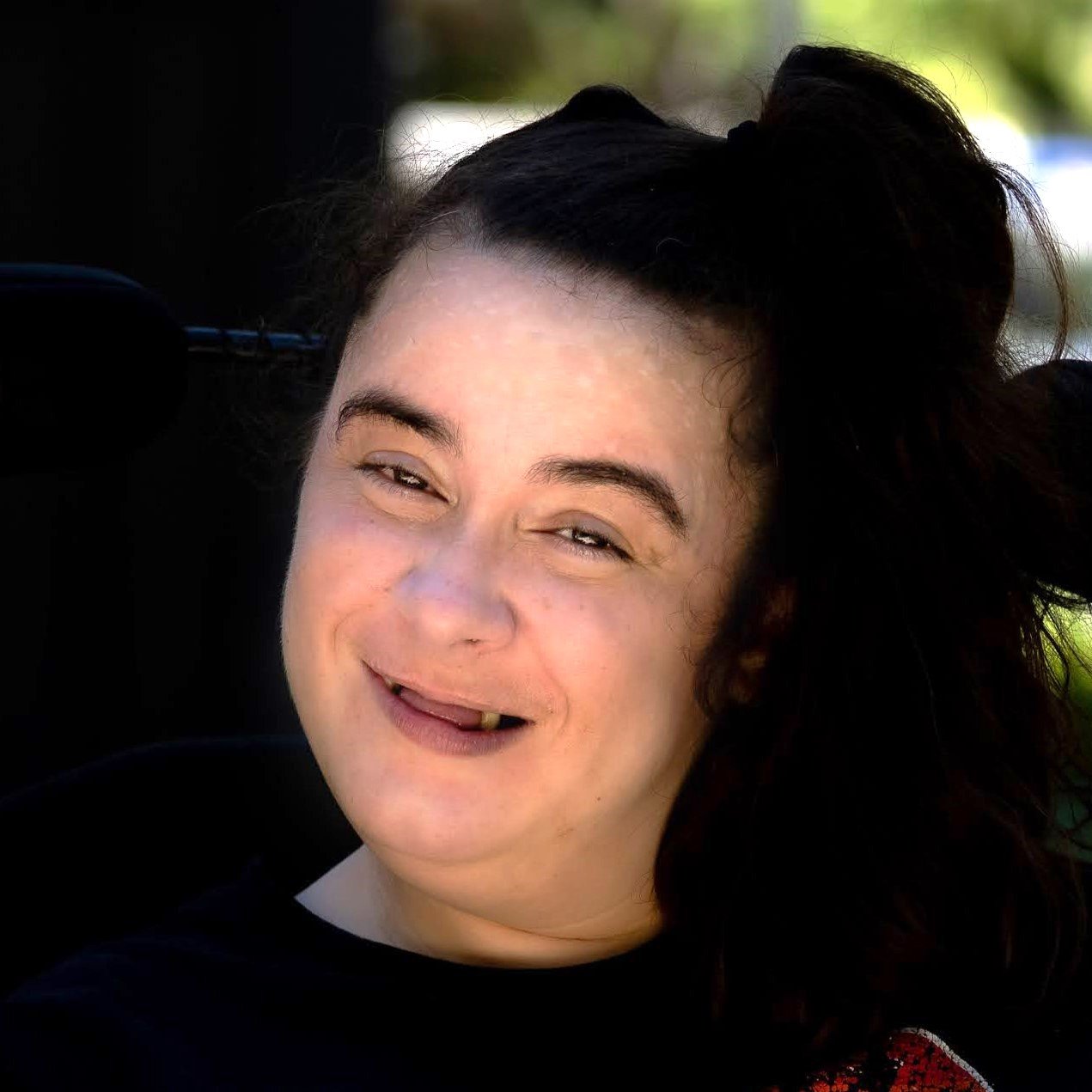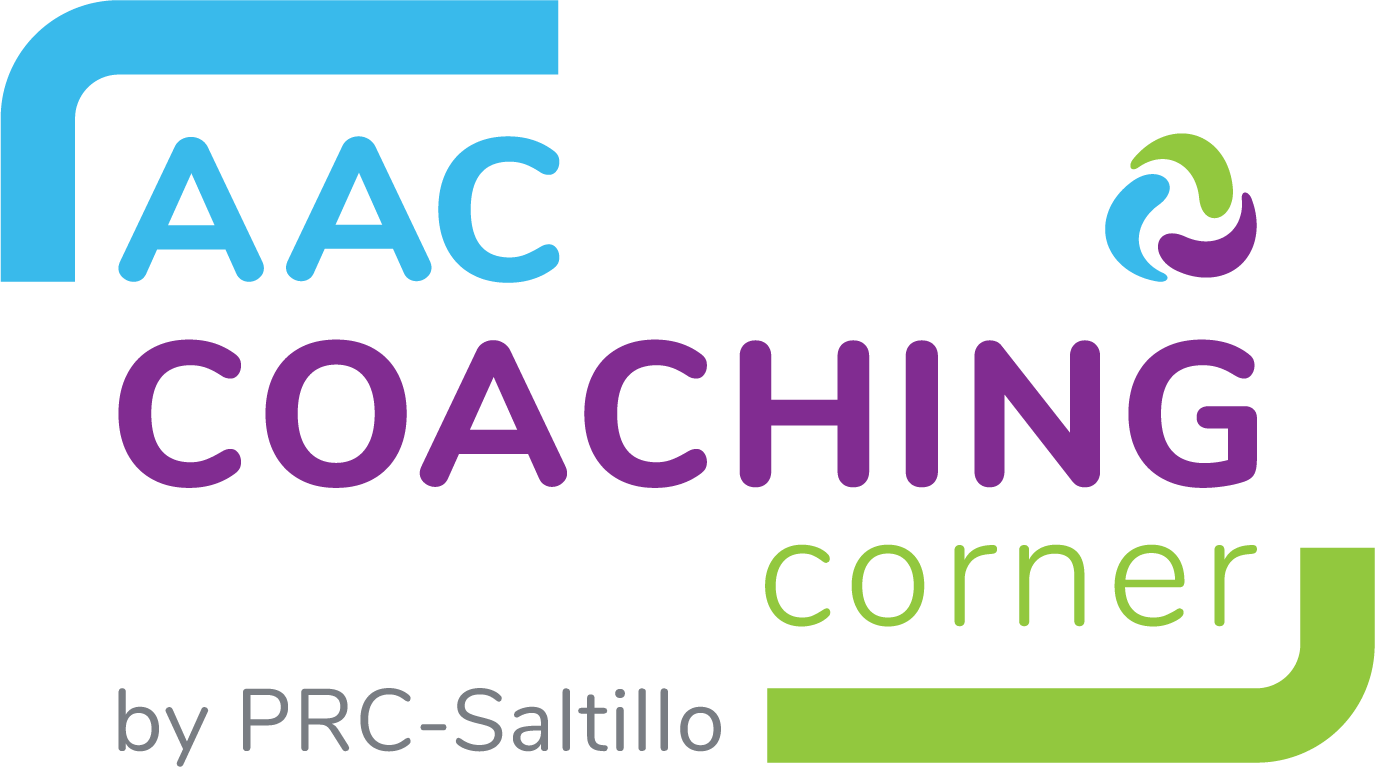
by Stephanie Fassov, PRC-Saltillo Ambassador
Who Are You?
Exploring Identity and AAC Through Stories
Who are you?
That’s a big question.
Maybe you answer with your favorite food.
Or maybe your favorite music.
Or maybe a story about something that happened in your life.
Your identity is who you are.
It’s not only inside you.
It’s also what you share with other people.
However, sometimes sharing who you are can be hard. When you communicate on AAC (Augmentative and Alternative Communication), it can be challenging to express yourself fully. Your words may take longer. Maybe your device doesn’t have the proper vocabulary. Maybe people only see your “needs” and not your whole personality.
A man named Erik Erikson was a psychologist. That means he studied how people grow and change. He said that our identity, who we are, grows as we live life and have relationships.
For people who communicate on their AAC systems, these relationships happen at home, at school, with friends, and as we grow older, these moments can help our identity grow strong, or sometimes they can hold it back.
Let me tell you a story. When I was at school, a friend asked me what my favorite game was. I spelled out on my communication board to tell them, “Pretty, Pretty Princess.” My friend smiled and said, “I haven’t heard of that game!” So, I told them all about it, using my low-tech AAC system. In that moment, I felt happy and proud, because I was seen for who I am. That’s what Erikson meant: our identity grows stronger when we share ourselves with others.
I don’t want to just talk about big ideas. Instead, let’s share stories like this one. Stories reveal the truth in a way that we can truly understand.
Communication Builds Identity
I remember being in school. I wanted to share an idea in a group project. I typed it on my communication board. By the time I finished, the group had moved on.
I sat there thinking, 'Do I even matter?'
It hurt. I felt invisible. I felt small.
That day, I learned something. Communication isn’t only words. It’s also about patience and being included. When people wait for you, your identity feels stronger. When they don’t, you feel unseen.
Have you ever felt like that?
Words Are Power
Words help us say who we are.
One day, I talked about my faith on my AAC system. That was very different from asking for water or food. It was about me. My identity.
AAC gives us big words like dream, love, hope, and believe. Without these, people only see our needs. With them, we can say, 'This is me.'
When your device has these words, you have more power to share yourself.
More Than Just Needs
Think about this:
You can say “bathroom.” You can say “water.”
But can you say, “I think math is boring”?
Can you say, “I love art”?
If not, people only see your body’s needs, not your personality.
At home, it’s the same. Maybe you can say “hungry,” but can you say “I want garlic pizza with jalapeños”?
Fun words, silly words, even weird words. All of them matter. That’s where identity lives.
Storytelling Shows Who You Are
One day, my family and I went to church. My mom put her jacket on my wheelchair without asking me. Her jacket knocked over my cup, and my coffee spilled all over. My mom was already in a bad mood. I said, “Come on, there’s no more coffee.” She walked away, but I started yelling, so she came back. She pushed my wheelchair angrily into the van. I tried to stop her, but I couldn’t.
In that moment, I felt very sad. I didn’t feel like a person. I felt like a thing, like a shopping cart being pushed around. It hurt a lot. I felt small, like I didn’t even exist.
But here is the strong part: when I tell this story, I get my voice back. Talking about what happened helps me feel like “me” again.
I work with teens who communicate on AAC. I help them take hard stories and turn them into strong stories. This is called narrative therapy.
When people who have AAC needs tell their stories, they are saying:
- This is what happened.
- This is how I felt.
- This is who I am
Feelings Need Words
Can you name three feelings you had today?
Now, imagine you didn’t have those words. How would you tell a teacher, parent, or friend?
We need emotional words. Words like angry, proud, lonely, and excited.
I have 144 words for feelings on my device! Words like heartbroken, cherished, vulnerable, and ticked off. The more I use these, the less I shut down or melt down.
When you can name your feelings, you can be understood.
Family Helps Identity
Family is where identity begins.
Sometimes during holidays, I try to share, but some of my relatives ignore me. My heart feels empty, and I feel like I'm shrinking.
But sometimes, family listens. They laugh at my joke. They ask my opinion. That feels magical.
When family listens, not just to needs, but to your personality. It says: You matter. Your voice matters.
Friends and Belonging
Belonging is not just being in the room. It’s being included.
One time, a friend waited for me to finish a story on my device. Everyone else moved on. But my friend stayed, nodded, and laughed when I was done.
That moment said: ‘I want to know you.' Not just your needs, but who you are.
Friends who wait are lifelines. They help you feel like you belong.
Growing and Changing
Identity keeps growing.
In middle school, I needed words like “best friend” and “crush.”
As an adult, I needed words for work and independence, like “I would appreciate it if you would…”
Your AAC system has to grow with you. You are constantly learning and changing, and your voice should too.
Why This Matters
Your identity is built through communication. Every word you speak on your device says: This is me.
So next time, don’t just let people ask you, “What do you need?” Tell them: This is who I am.
Because communication is not just survival.
It is identity.
And every voice matters.
Glossary
AAC (Augmentative and Alternative Communication): Tools people use to communicate when they can’t rely on speech alone. These can be devices, symbol boards, or picture cards.
Erik Erikson: A man who was a psychologist. He had ideas about how people change as they grow up.
Identity: Who you are, including your likes, dislikes, values, memories, and personality.
Communication Partner: The people who talk with you, like family, friends, teachers, and therapists.
Emotional Vocabulary: Words for feelings, like happy, sad, angry, and proud.
Storytelling: Sharing personal stories about your life.
Support System: The people who support you: family, friends, professionals.
There are no comments yet. Be the first to post!You must be logged in to post.
Communicators In Action - self, identity, life, inside














